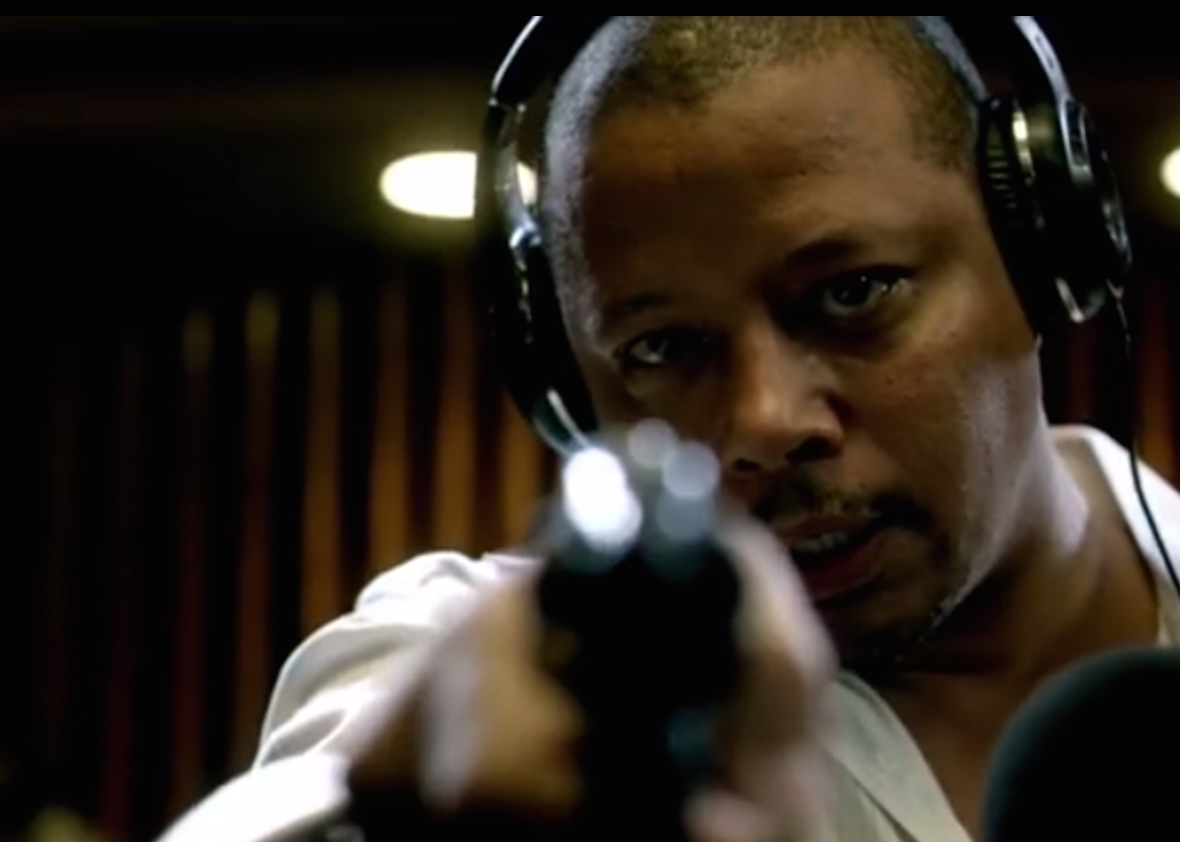Lucious Lyon has never been a particularly interesting character—in Season 1, he’s a one-dimensional villain who only cares about securing his legacy at Empire in the years to come. This worked for the show, in part because his flatness fit in with the rest of the drama’s mostly broad-stroked characters, and because there was Cookie. Cookie’s quips and candor were the draw of Empire, and everyone else was along for the ride.
But now that Lucious is no longer living on borrowed time (having been misdiagnosed with ALS in one of the show’s smartest twists), Season 2 has attempted to rectify his one-dimensionality by saddling him with a haunted past and serious mommy issues. Via various flashbacks, Lucious’ mother (Kelly Rowland) has been slowly revealed to have suffered from an unspecified mental illness when he was a child, and in the latest episode, “True Love Never,” her arc reaches a climax. At a particularly vulnerable moment, she points a loaded gun at her head in front of her young son as he looks on in terror. (Whether or not she pulls the trigger remains to be seen in a future episode, most likely.)
This flashback inspires Lucious to finally dig deep into his soul and let it all out for his song with young protégé Freda Gatz. In the bizarre scene, Lucious brings a gun not unlike the one his mother had to the studio and tells Freda that he finally knows what was missing from the song: “You’re about to become a part of my life story.” (Weirdly, Freda is not at all perturbed by the fact that Lucious is waving a gun after calling her there at four in the morning. She cracks a smile, in fact.) Queue the song sequence, which features a lot of gun cocking and chamber spinning. And a very, very angry Lucious.
It’s a weird moment not just because it’s so incredibly reckless, but because it seems to be playing into Terrence Howard’s actual public persona as an off-kilter man prone to violent outbursts. The show has always walked that line, though usually more delicately—I’ve joked about Howard being perfect for the role of Lucious because their cavalier attitudes about women and strange, otherworldly outlooks on life (Howard does not believe that 1+1 = 2) seem to align perfectly. Now, though, the similarities don’t seem as funny or apt—they feel cheaply exploited for drama. In a recent Rolling Stone profile, Howard revealed that when he was a young boy, he witnessed his father kill another man—which in this context sounds awfully similar to Lucious potentially witnessing his own mother’s suicide. And to watch Howard, who has been accused of being violent toward several ex-lovers and ex-wives throughout the years, perform a scene in which he unleashes his most menacing, scariest emotional state yet while waving a gun calls to mind those exact accusations. It feels like an experiment in icky, voyeuristic storytelling that leans too heavily on connotations from the world outside the show.
It’s not a stretch to believe that this is how Empire is operating—Daniels has admitted to pulling pieces of his own childhood, namely the infamous Jamal-in-the-trashcan scene from Season 1, for the show. And since the beginning, it’s used the audiences’ familiarity with both of its stars, and their chemistry in Hustle and Flow, to its advantage. In fact, Lucious’ song this week may recall “Whoop That Trick,” a song brimming with equal amounts of anger and fervor; this may be the closest Lucious has come to resembling DJay. But Hustle & Flow came out in 2005, when Howard’s personal life was far less public than it’s become now. A decade later, his reputation now thoroughly precedes him, and Daniels embraces that fact, for better and for worse.
